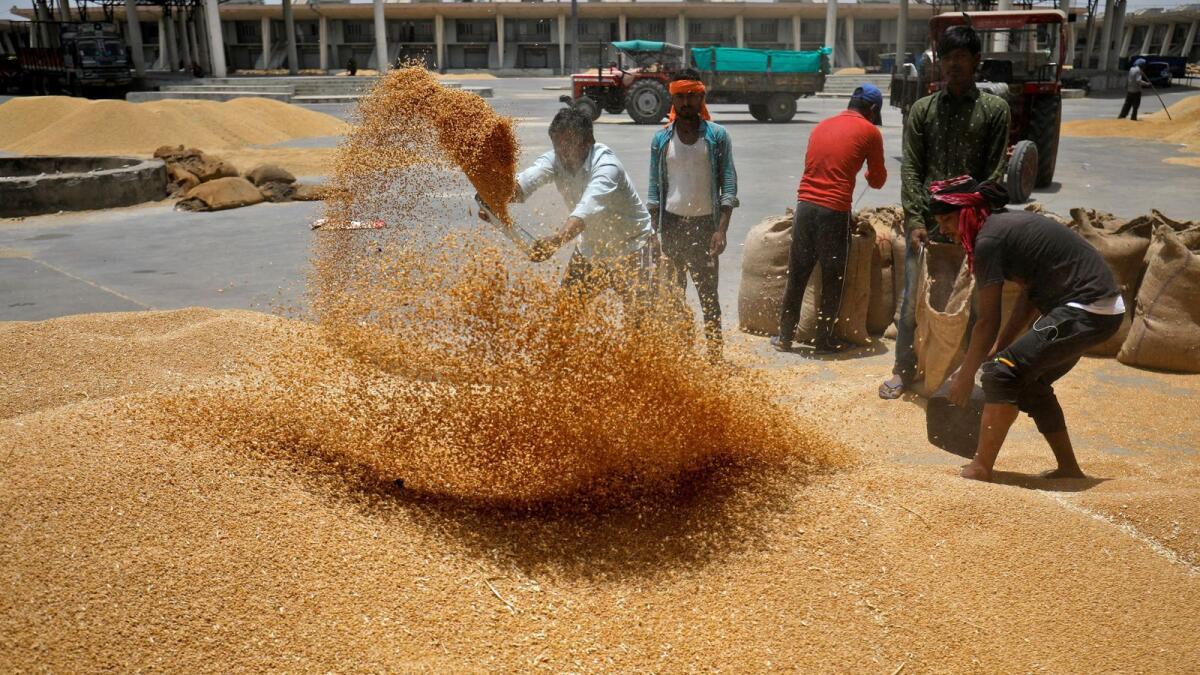India Extends Halt On Futures Trading In Key Farm Commodities To December 2024
The Securities and Exchange Board of India (SEBI) in 2021 ordered a year-long suspension of futures trading in key farm commodities, a dramatic step since allowing futures trading in 2003. That suspension was last year extended until December 20, 2023.
In a notification issued late on Friday, SEBI said the suspension of trading in futures contracts would now continue until December 20, 2024, on soybean and its derivatives, crude palm oil, wheat, paddy rice, chickpea, green gram and rapeseed mustard.
"It's a very unfortunate move," said Sandeep Bajoria, CEO of Sunvin Group, a vegetable oil brokerage.
Stay up to date with the latest news. Follow KT on WhatsApp Channels.
"The Indian vegetable oil industry is in dire need of a hedging mechanism to navigate the ongoing global market turbulence. Unfortunately, no such mechanism exists at present due to the absence of commodity futures."
India fills nearly two-thirds of its edible oil requirements through imports, which incurred a record cost of $20.8 billion in the 2022/23 financial year ended on March 31.
The move was expected by some market participants, as Prime Minister Narendra Modi's government aims to stabilise prices with a series of state elections coming next month ahead of a general election next year.
ALSO READ:
- UAE calls for free flow of capital, goods, services during B20 meeting in India
- India to cut floor price for basmati rice exports after drop in overseas sales
- India records strong 7.8 per cent growth in June quarter
The government has made it abundantly clear that it won't permit the prices of food commodities to increase by implementing a range of export restrictions on wheat, rice, and sugar, said a Mumbai-based dealer with a global trade house.
"Sadly, the government links the price rise in food commodities to futures trading, so the extension was expected," he said.
India's National Commodity And Derivatives Exchange (NCDEX), which derives most of its volume from trading in farm commodities, was the most affected by the government's decision, followed by the Multi Commodity Exchange.

Legal Disclaimer:
MENAFN provides the
information “as is” without warranty of any kind. We do not accept
any responsibility or liability for the accuracy, content, images,
videos, licenses, completeness, legality, or reliability of the information
contained in this article. If you have any complaints or copyright
issues related to this article, kindly contact the provider above.
Most popular stories
Market Research

- R0AR Chain Launches Public Node Sale Following $1 Million Whitelist Success
- Forex Expo Dubai 2025 Returns October 67 With Exclusive Prize Draw Including Jetour X70 FL
- 1Inch Unlocks Access To Tokenized Rwas Via Swap API
- Falcon Finance Announced $FF And Community Sale On Buidlpad
- DOLLUM Expands Wallet Opportunities, Introducing New Security Features Following The DOL Token Sale
- Ethereum Based Meme Coin Pepeto Presale Past $6.6 Million As Exchange Demo Launches





















Comments
No comment